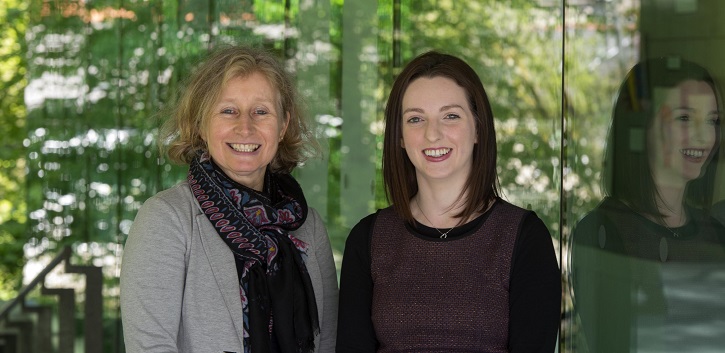Adverse health impacts faced by people bereaved by suicide

Health professionals must prioritise assessing the mental and physical health problems among those bereaved by suicide, according to the Chief Scientist at the National Suicide Research Foundation (NSRF).
Family members bereaved by suicide have elevated levels of depression, anxiety and stress, and are at increased risk of adverse physical health conditions, said Professor Ella Arensman, after the publication of new NSRF-UCC research.
Family members bereaved by suicide suffer health issues, according to new UCC research https://t.co/W1kOSiyxBy
— UCC Ireland (@UCC) May 16, 2018
“This research underlines the importance of increasing awareness among health and mental health professionals to prioritise assessment and early identification of mental health and physical health problems among people bereaved by suicide.”
The new research, conducted by the National Suicide Research Foundation (NSRF) and the School of Public Health, UCC, comprised a systematic review of 24 studies worldwide and in-depth interviews with 18 family members bereaved by suicide in Ireland.
Of family members bereaved by suicide, 24%, 18% and 27% had elevated levels of depression, anxiety and stress, respectively, a new study has shown. They also experienced other psychological problems including panic attacks, suicidal thoughts, intrusive images, nightmares and post-traumatic stress disorder (PTSD).
Mental and physical health of people bereaved by suicide should be assessed, study finds https://t.co/ZLStW27IEX pic.twitter.com/VgN92pNK6F
— BreakingNews.ie (@breakingnewsie) May 15, 2018
Family members bereaved by suicide were also at an increased risk of adverse physical health conditions, including chronic obstructive pulmonary disease (COPD), hypertension, diabetes and cardiovascular disease (CVD), according to the research findings. They also experienced more physical health complaints, physical illnesses and physical pain.
Considering these health difficulties, family members expressed a need for adequate formal and informal support. Family members face challenges including difficulty in accessing formal support services due to grief reactions, being unsure where to access such support and not having the financial means to pay for such support, the research found.
Ailbhe Spillane, who conducted the research, said: “Since we now know the main physical and mental health problems experienced after suicide bereavement, we need to prioritise high-quality support services, without restricting such services because of financial constraints.”
The studies are published at BMC Public Health and BMJ Open.
The NSRF is in receipt of funding from the HSE’s National Office for Suicide Prevention and the Health Research Board (HRB). The NSRF’s research is linked to Connecting for Life, Ireland’s National Strategy to Reduce Suicide 2015-2020. The research was conducted as part of PhD research within the HRB Structured Population and Health services Research Education: SPHeRE.
- Suicide Support and Information
- The Psychological Society of Ireland
- Samaritans: 116 123 (freephone); text message (standard text rates apply: 087 2609090); e-mail: jo@samaritans.ie
- Aware 1800 804848 (freephone); e-mail: supportmail@aware.ie
For more on this story contact:
Lynne Nolan, Media & PR Officer, UCC on 087 210 1119 or lynne.nolan@ucc.ie
